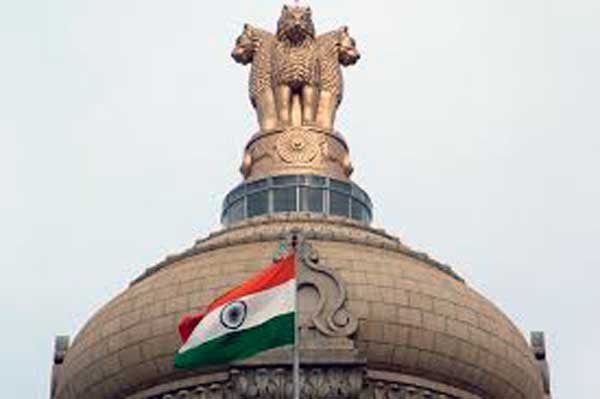The last three years saw a major change in India’s national security environment. On the one hand, Pakistan, beset by internal turmoil and economic bankruptcy faded out, and China emerged as the major national security concern. The Chinese created tension on the Northern border in 2020 in the Ladakh area and escalated the tensions in Eastern areas in 2022.
In both these actions, it becomes clear that the Chinese aim is not territorial gain but imposing economic costs on us. Another aim was also to humiliate us and reduce our international influence. All this was done precisely at a time when India was fighting with the Chinese exported Covid-19.
Govt. of India and the PM seem to have come to the conclusion that the only way to fight China on our terms is to increase India’s comprehensive national power. A sound economy, internal cohesion, soft power, and scientific and technological prowess are some of the clear aspects of this. It is in this context that India’s campaign of ‘AtmaNirbhar (self-reliant) Bharat’ is extremely important. A country that is close to 70% dependent on imported arms and weapons can hardly be called independent.
In the last two-three years, a major push has been given to the production of indigenous arms and research for new technologies for the armed forces. The earlier model wherein the DRDO (Defence Research & Development Organisation) had the monopoly of research in defence, has been changed. Instead today many national laboratories, private companies and universities have become involved in research and development activities. The result of this initiative has been indeed spectacular. From close to zero exports, this year we have reached exports of a $ 1 billion.
But decentralization of defence research has brought in new challenges in its wake. Weak law and order machinery of the states is proving to be a major flyin the ointment. In India, law and order is a state subject and the Central Govt has very little role to play. Complex political motives come into play when local politics impinges on national security.
National security is not just defence of borders but is a much wider concept that encloses many aspects of national endeavors. I had an early brush with these complexities way back in 1993. In the month of March that year, Mumbai was rocked by a series of bomb blasts that sought to destroy India’s economic infrastructure. It soon came to light that the RDX explosives that had landed on the Maharashtra coast were transported to the city with the help of corrupt custom department officials. Here was a clear case of direct linkage of a social evil affecting the security of the nation.
In good faith, I decided to address the issue of corruption as a national security threat from a public platform and participated in public meetings. With my armed forces background, I had no clue about the political machinations and connections with the then rulers of the state. The long and short of it was that as a consequence of these actions, I was subjected to a ‘ban’ in state-controlled university.
Today weak law and order in states pose the biggest indirect threat to our efforts at ‘Atmanirbharata’ (self reliance) in defence.
Recently on 9 January, a large group of lumpen elements carrying party and the national flag (mandatory these days in any protest) barged into a national-level research institute based in Pune and threatened the administration with the destruction of property unless they agreed to their demand. The demand pertained to an alleged denial of whole credit to one student for the project! Irrespective of the reasonableness or stupidity of such demands in modern science wherein most research is done by a group, the threat of vandalism to the institute was real.
This is an institute where cutting-edge research is going on subjects like Artificial Intelligence, superconductivity as well as viruses etc. Imagine the damage to national security if these projects were to be destroyed or compromised by politically illiterate goons.
This is not the first such instance, and unfortunately not the last. In the past, Pakistan destroyed India’s only electronic chip making research facility based in Chandigarh during the Khalistani movement in the 1980s. On 28 December 2005, Pakistani agents targeted the IISc (Indian Institute of Science) based in Bangalore with the aim to kill at least 100 scientists gathered there for a seminar.
Luckily for India, the terrorist got caught in traffic jam and reached the venue only after all the participants had dispersed! But for this lucky break, it is difficult to know the effect of this likely massacre of scientists would have had on our space and nuclear programme.
As an immediate measure, the state must put a permanent section 144 at all such institute premises so that large groups cannot gather and threaten vandalism. In addition, given the decentralization of sensitive research activity to several institutes and private companies, the Govt. must declare them as restricted/prohibited areas so that the local police are obliged to act in a firm manner against any trespass and threats.
Unless these measures are taken immediately, the whole idea of ‘atmanirbharbharat’ that is sought to be achieved through de-centralized research is under threat. Will we act BEFORE damage is done or bolt the door after the horse has run away?






To effectively deal with China, we first have to knock Pakistan out of the picture: in this regard, we can learn a great deal from how Russia is dealing with Ukraine.
Once we only have one front to worry about, Beijing will no longer have the upper hand.